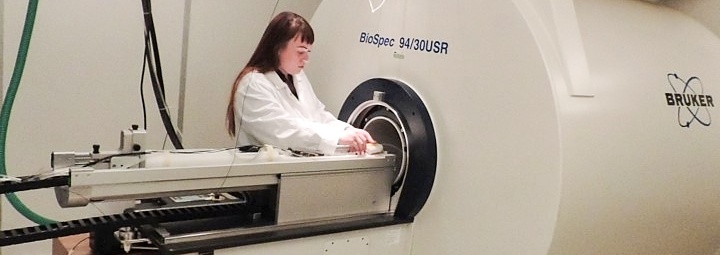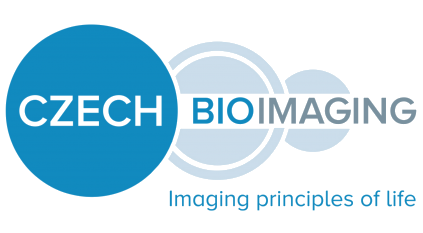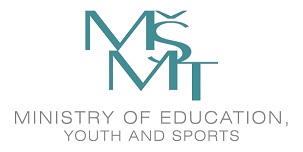
Provided services
Our facility specializes in magnetic resonance experiments in small laboratory animals. The supporting certified animal facility extends over the whole laboratory building and provides housing for animals included in the running experiments in individually ventilated cages. All technical equipment and operation procedures are designed to protect the animal from any potential infection from humans or other animals. Efficient operation of an MR scanner, particularly in experimental conditions, is a task often requiring specific knowledge of MR physics and extensive experience. Therefore, we provide the access to MR techniques in the form of full service. Such a form of service is also useful if the user is not certified to work with animals by the Ministry of Agriculture of the Czech Republic.
The NMR group core facility provides the following services:
• Expert assistance in experiment design preparation and animal use permit application
• Pilot experiments, protocol optimization (MR and animal procedures)
• Animal care, assistance in model preparation, record keeping, taking samples
• Custom measurement
• Data processing and experiment evaluation
• Trainings and courses on methods and laboratory work
• Method development and related research
• MR software development
The initial expert assistance may help the interested researcher to identify the MR-visible biomarkers relevant for the specific research and MR methods most suitable for their measurement, to find the acceptable trade-off between the extent and quality of imaging, the number of animals, the schedule and total cost, and to prepare the animal use protocol in a form required by the veterinary, hygienic and environmental supervisory organs.
During the pilot experiments and protocol development, details of the procedures can be developed in cost-saving conditions, and necessary data processing routines may be developed that will improve productivity in the target experiment. The practical experience obtained in the pilot experiments may identify which specific team qualifications will be necessary and the ad hoc service team can be set up. The extent of this service depends on the project complexity and previous experience of the research team in the specific domain of user's interest. Due to the width of possible research needs it is hardly possible to give a general estimate of the scale of such work).
The animals should not spend more time in our facility than needed for the project. As a rule, a one-week adaptation is required whenever the stress from an unknown environment could affect the results, i.e., practically always. Animals in longitudinal studies may require months-long housing, a few days may be sufficient in other cases. During their stay in our facility, the animals are given proper care. Access of external researchers in the animal rooms can be permitted in only exceptional cases, but regular reporting or camera observation are possible.
The participation of researcher-clients is welcome in important operations concerning their animals (health checks, model-preparation procedures, MR measurement) because it helps them notice even specific factors of the environment, timing or procedures that might go unnoticed or unrecorded by the laboratory staff and be relevant in the specific study. Observation of raw data and the animals during the measurement may also help the user understand existing bottlenecks and contribute to specific experiment design optimization.
The users are not expected to be or become MR experts, but depending on the specific targets, it may be found beneficial to provide specific training in a specific field of MR physics, biochemistry, physiology or biology to specific users and possibly involve them directly in the implementation of experiments, and therefore give them compulsory training on safety in the MR scanner environment and, if necessary, dealing with genetically modified organisms, and familiarize them with practical experience in preparing animals for MR measurements. Ad hoc training may be organized for a specific user group. Besides that, courses are organized for university students in the framework of the syllabi of relevant subjects.
As far as data management is concerned, various options exist in both the legal and the scientific domains. Data (in principle considered to be an intangible asset that is not intellectual property) ownership and usage rights shall be specified in a data transfer licence. The data may be provided to the user as raw data (in the device specific format with full metainformation, or a general format with only partial metainformation, the laboratory staff can handle various kinds of preprocessing, recalculation, analysis at the individual scan level, or may include group analysis. The useful kind and extent of such work is a very individual matter depending on the project and the specific decision will result from a discussion between the facility and the user.
The facility staff may provide the user with experiment-specific software that may help the user visualize and (re-)evaluate the data. This software is, as a rule, the product of the MR Research Group and, therefore, can be customized for specific needs, particularly if such need is found more general.
For more information, please contact us!






